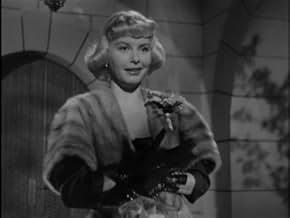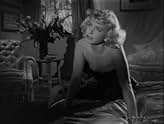In 1940s Chicago, a young black man takes a job as a chauffeur to a white family, which takes a turn for the worse when he accidentally kills the teenage daughter of the couple and then trie... Read allIn 1940s Chicago, a young black man takes a job as a chauffeur to a white family, which takes a turn for the worse when he accidentally kills the teenage daughter of the couple and then tries to cover it up.In 1940s Chicago, a young black man takes a job as a chauffeur to a white family, which takes a turn for the worse when he accidentally kills the teenage daughter of the couple and then tries to cover it up.
- Awards
- 1 win & 2 nominations total
Jorge Rigaud
- Ralph Farley
- (as George Rigaud)
George D. Green
- Panama
- (as George Green)
Willa Pearl Curtis
- Hannah Thomas
- (as Willa Pearl Curtiss)
Ruth Roberts
- Helen Dalton
- (as Ruth Robert)
Georges Roos
- Scoop
- (as George Roos)
Featured reviews
This movie had an incredibly troubled history. Hollywood would not touch Native Son even during its brief 1940s flirtation with liberalism. A 1944 Orson Welles stage production with Canada Lee playing the teen-aged gang member Bigger Thomas, though critically successful, had been quashed by the Catholic Legion of Decency. Wright's novel was sold through the Book of the Month -- its first African-American author -- and won incredible notices. It also scared the daylights out of mainstream white culture. He sympathetically portrayed an African-American murderer (the Legion's stated complaint about the play), unambiguously showed white female desire for a black male and gave a rather jaundiced view of the left-wing, jazz-loving bohemia hidden among the youth of the very wealthy. (And by portraying the thrill seekers of the left as merely that, Wright also alienated many of his Communist and left-wing friends.) It was all too much for Hollywood. Still, a number of people tried to get a film of the play made independently with Canada Lee eventually opting to shoot in Argentina with a French director (not Welles). However, Lee couldn't get out of the U.S. (Oddly enough, he and Sidney Poitier were sneaked into Apartheid South Africa as indentured servants that year so they could appear in Zoltan Korda's masterful adaption of Cry, The Beloved Country.) At the last minute, Wright was called upon to play the lead role and he is terrible! The great writer could not act. He does the one thing a serious black actor should never do -- he pops his eyes constantly. In fairness, the production values are outstanding. This is basically a crime story with a racial subtext and Chenel nails the film noir ambiance. Unfortunately, the supporting actors are Argentinian with Americans dubbing their voices. And there's Wright, already over 40 -- too old to play bigger teenager Thomas -- popping his eyes. When I saw this screened at the AFI, Stanley Crouch, who had written a laudatory essay about the film, spoke afterwords. I seriously wondered if he had seen the movie before he wrote about it. Crouch mumbled throughout his question and answer session and the audience kept telling him to speak louder. The movie deserves preservation simply because of its historic significance but not a wide audience. Read the novel instead.
Piere Chenal was a specialist of crime movies since the 30's but never directed a masterpiece (except "La Foire Aux Chimères, still not available on DVD) but all his movies were intelligently shot and "Le Dernier Tournant" (first movie adaptation of "The Postman Always Rings Twice") was admired by Orson Welles. During WWII and after, Pierre Chenal shot in Argentina some nice crime movies. "Native Son" was adapted and played by his author, Richard Wright, and shot first in Chicago then in Argentina. The movie had some success in south American countries but did nothing in USA where 40 minutes were cut. Richard Wright never saw the final cut. Pierre Chenal didn't want that cut print to be exploited in Europe. In the 80's, a 90 minutes print was found and exploited. If you want to know more about this very strange shooting, I advise you to read the six pages comments by Pierre Chenal in the book "Pierre Chenal" (collection 24 souvenirs / seconde). You will discover a very bright director and maybe want to discover his movies.
A flawed but ultimately important 1951 adaptation of the seminal Richard Wright classic which he co-scripted & inexplicably starred in (?). Wright plays Bigger Thomas, a spiteful & angry black man living in the slums in Chicago (actually filmed in South America) w/his mother & younger brother & sister. Hoping to derail him from his path to infamy, a confidante of the family recommends him to become a chauffeur for a rich white family where he'll live & work from. There he meets the family's dangerous daughter who is more than willing to corrupt poor Bigger as she has him drive her & her boyfriend, an unabashed lefty w/revolutionary leanings, around as they drink winding up at a black club where Bigger's singer/girlfriend is debuting. Wrapping up the night, Bigger has to navigate the clearly overly intoxicated daughter to her room stirring the attention of her blind grandmother which sends Bigger into a panic whereby he accidentally kills her when he smothers her w/a pillow (to prevent her from exposing him). To make matters worse he chooses to dispose of the body in the home's incinerator & blames her apparent disappearance on the boyfriend. As tensions mount & a flurry of reporters descend on the manse to stay on top of the kidnapping angle Bigger has concocted, one journalist in particular continues to prod Bigger until the remains of the dead woman are found sending him fleeing w/his girl into the inner city slums to evade capture where things only get worse. If you can overcome the bad acting, obvious un-American locations, & colossally miscast Wright (who was in his 40's playing a someone in his 20's) then the social issues & inherent racism of the time makes sense why this wretched character, who is devoid of getting our sympathies, still does anyway making this black film noir (it was presented last week on TCM's Noir Alley w/Eddie Muller) a must for all to see.
When Native Son was made in Argentina in 1950 some of the actors were not from the United States, thus they spoke English with accents not realistic for the characters they portrayed. Dialogue was then dubbed using the voices of local American residents of Buenos Aires. I was then a student at an American high school in BA; they came to the school looking for an American boy and girl to be the voices of Bigger Thomas' brother and sister. I did Vera Thomas' voice and a boy whose Dad was in the Navy did the voice of Bigger's brother. We got off school for two days and as I recall we were paid 300 pesos. Mr. Chanal drove us home afterwards. My big line was, "Eeek, eeek, a rat!". It's a long time ago but I seem to remember that some parts were actually played by non-actor local Americans. After 49 years, I saw this movie again in 1999 and couldn't believe how amateurish it is, but in many ways the making of this movie was Amateur Night, so that makes sense.
Author Tom Clancy has been very critical of the way his novels, including "Patriot Games" and "Clear and Present Danger," have been adapted for the screen, and he has been especially critical of the casting, believing that Harrison Ford is too old to play his CIA agent hero, Jack Ryan. Perhaps Clancy should do what black novelist Richard Wright did in 1950: play the lead role in the film version of his novel. The novel in question is "Native Son," the now classic tale of Bigger Thomas, a poor black youth who takes the job of chauffeuring the daughter of an affluent white liberal, only to kill the girl out of fear rather than malice.
The movie was produced on a miniscule budget in Europe, and despite poor acting, low-class production values, and a generally amateurish tone, it is of definite interest due to the casting of Wright as Bigger. Sure, Mickey Spillane would play his creation, the hard-nosed private detective Mike Hammer, in 1963's "The Girl Hunters," but whatever Spillane's merits as a writer, he has never been considered a "serious" novelist. Wright, on the other hand, was the first black author to break from the literary ghetto in which Negro writers were usually placed, and be acclaimed as a distinguished man of letters regardless of race. His is a prestigious name in literature, so it comes as quite a shock to see this great writer willing to be seen as a bad actor. But Wright is surrounded by thespians who are just as bad, and can't boast of having written a literary classic. Most of the cast is as amateurish in their portrayals as the stock company Edward Wood employed in such laughably inept productions as "Plan 9 from Outer Space" and "Bride of the Monster." The overall production is not as shoddy as Wood's films, but the middle-aged Wright's portrayal of 19-year-old Bigger Thomas is more than enough to thoroughly sink it.
Still, this is a definite curio, and worth a look for anyone as interested in literature as they are in cinema.
The movie was produced on a miniscule budget in Europe, and despite poor acting, low-class production values, and a generally amateurish tone, it is of definite interest due to the casting of Wright as Bigger. Sure, Mickey Spillane would play his creation, the hard-nosed private detective Mike Hammer, in 1963's "The Girl Hunters," but whatever Spillane's merits as a writer, he has never been considered a "serious" novelist. Wright, on the other hand, was the first black author to break from the literary ghetto in which Negro writers were usually placed, and be acclaimed as a distinguished man of letters regardless of race. His is a prestigious name in literature, so it comes as quite a shock to see this great writer willing to be seen as a bad actor. But Wright is surrounded by thespians who are just as bad, and can't boast of having written a literary classic. Most of the cast is as amateurish in their portrayals as the stock company Edward Wood employed in such laughably inept productions as "Plan 9 from Outer Space" and "Bride of the Monster." The overall production is not as shoddy as Wood's films, but the middle-aged Wright's portrayal of 19-year-old Bigger Thomas is more than enough to thoroughly sink it.
Still, this is a definite curio, and worth a look for anyone as interested in literature as they are in cinema.
Did you know
- TriviaCanada Lee was set to star as Bigger Thomas (He had shot to fame in Orson Welles's Broadway production of Native Son.), but he was stuck in limbo with South African customs agents during the filming of Cry, the Beloved Country (1951), not to mention his failing health eventually caused Lee to back out of the project.
- GoofsWhen Bigger is at the beach with Bessie, a twin-engine prop plane flies overhead, but the sound of jet engines is heard.
- ConnectionsReferenced in Biography: Dorothy Dandridge: Little Girl Lost (1999)
- How long is Native Son?Powered by Alexa
Details
- Release date
- Countries of origin
- Official sites
- Language
- Also known as
- Son av sitt land
- Filming locations
- Production company
- See more company credits at IMDbPro
- Runtime
- 1h 31m(91 min)
- Color
- Aspect ratio
- 1.37 : 1
Contribute to this page
Suggest an edit or add missing content




























